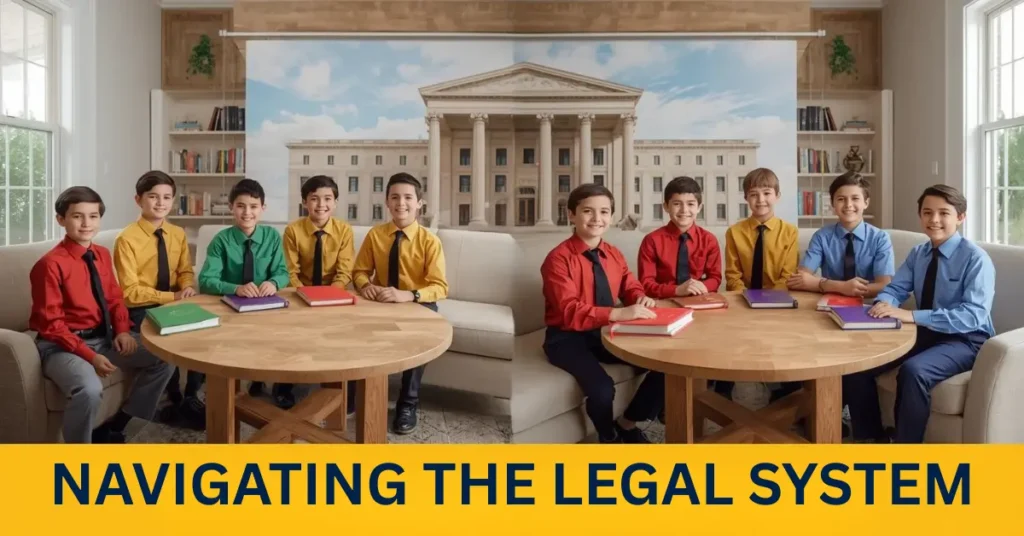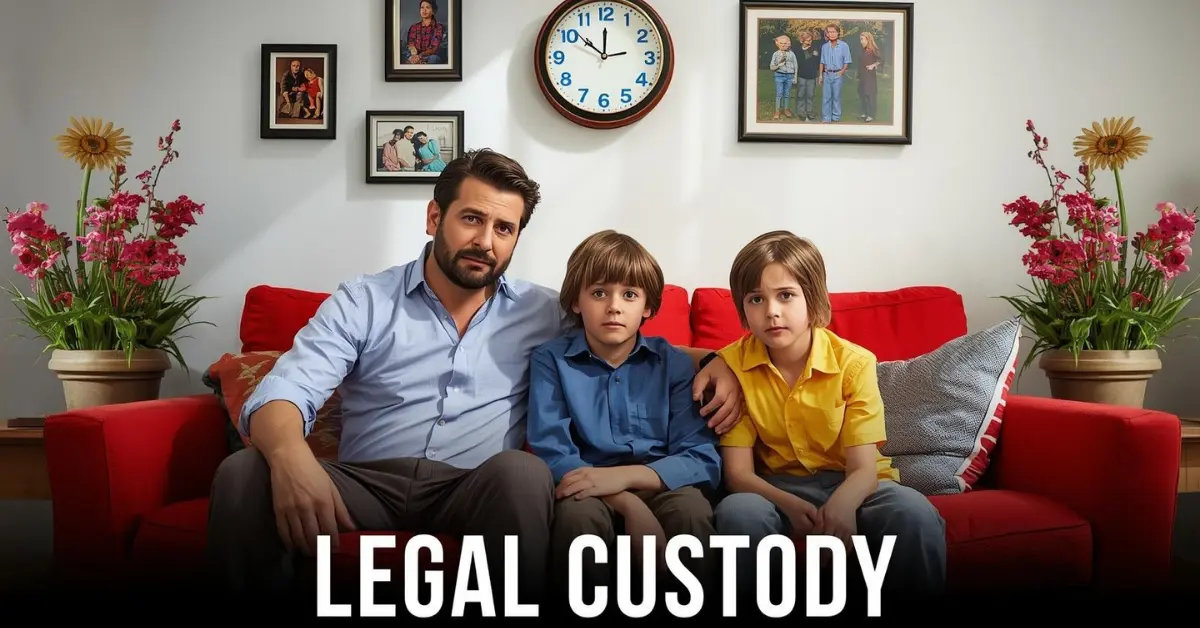As an attorney with years of experience in family law, one of the most frequent and important questions I encounter is, “What is legal custody?” It’s a concept that can significantly affect a child’s life, and the decisions made regarding it can shape a child’s future in profound ways. The topic is multifaceted, involving legal rights, parental duties, and sometimes, a considerable amount of emotional investment.
When parents go through a separation or divorce, the court is tasked with determining how custody of the children will be shared. Among the various types of custody, legal custody and physical custody are the two that often generate the most discussion.
While physical custody refers to where the child lives, legal custody pertains to the right to make important decisions for the child’s upbringing. These decisions include matters like education, healthcare, religion, and, in some cases, extracurricular activities.
In this article, I will walk you through the concept of legal custody, its types, what courts consider when making custody decisions, and recent legal changes that could affect future custody arrangements.
Suppose you are a parent, an attorney-in-training, or anyone seeking to understand custody better. In that case, this article will give you the information and insights you need to navigate these complicated matters.
What is Legal Custody?
Legal custody refers to the authority granted to a parent or guardian to make major decisions about a child’s life. This encompasses significant choices regarding the child’s education, healthcare, religion, and sometimes, even decisions about their extracurricular activities and future life plans.
The primary idea behind legal custody is to ensure that parents have the power to shape their child’s upbringing in alignment with their values and vision for the child’s future.
This is distinct from physical custody, which refers to where the child physically resides. Parents may share legal custody while the child primarily resides with one parent, or they may have equal time with the child under joint physical custody arrangements.

Types of Legal Custody
1. Joint Legal Custody
Joint legal custody means that both parents share the responsibility of making significant decisions about their child’s life. This is the most common type of legal custody.
Courts generally favor this arrangement, as it ensures that both parents have an active role in the child’s upbringing. For joint legal custody to work effectively, co-parenting must be cooperative. Parents must have open communication and be willing to collaborate on matters like the child’s education, medical care, and religious beliefs.
A good example: In the case of Smith v. Smith (a landmark case in Illinois), both parents were awarded joint legal custody because they demonstrated the ability to communicate well and make joint decisions in the best interest of their child, even though they lived in different cities.
2. Sole Legal Custody
In sole legal custody, one parent is granted the exclusive right to make decisions for the child. This may occur if the other parent is unable to make responsible decisions, often due to issues like abuse, neglect, or incapacity. Sole custody might also be awarded if parents cannot communicate or cooperate on crucial matters related to the child’s welfare.
For instance, Jones v. Brown (a case in California) resulted in sole legal custody being awarded to one parent after it was revealed that the other parent had a history of substance abuse that impaired their judgment in making important decisions for the child’s health and education.
Legal Custody vs Physical Custody
While legal custody relates to decision-making authority, physical custody dictates the child’s place of residence. It’s crucial to recognize that physical custody is separate from legal custody.
Parents may have joint legal custody but different physical custody arrangements. For example, one parent may have primary physical custody (i.e., the child lives with them most of the time) while both parents share legal custody. Alternatively, parents may have shared physical custody, meaning the child splits their time equally between both parents, but still shares legal custody.
In some cases, sole physical custody is awarded to one parent, while the other parent might have visitation rights. Joint Custody arrangements can also be a factor in determining the child’s best interest, especially when both parents are involved in decision-making.
Factors Courts Consider in Awarding Legal Custody
When courts determine legal custody, they prioritize the best interests of the child. Several factors are considered to ensure that the child’s welfare is protected. Some of the most important factors include:
- Parental Ability to Cooperate
Courts evaluate how well the parents can work together in making important decisions for their child’s life. Chronic conflict can lead to the court awarding sole legal custody to one parent if collaboration is deemed unfeasible.
- Each Parent’s Involvement in the Child’s Life
Courts look at how involved each parent has been in the child’s upbringing up to this point. A parent who has been the primary caretaker may have a stronger argument for sole or primary custody.
- History of Abuse or Neglect
A history of abuse or neglect is a significant factor in determining custody. The safety of the child comes first, and a parent with a history of such behavior may not be granted legal custody.
- Child’s Age and Preferences
In some cases, especially with older children, a court may take the child’s preferences into account. In many jurisdictions, children over the age of 12 are given more weight in custody decisions, though their preference alone is rarely the deciding factor.
Recent Changes in Legal Custody Laws
In the past few years, there have been several important updates in custody laws that parents, attorneys, and judges should be aware of:
- Joint Legal Custody Preferences
Many states have updated their statutes to presume joint legal custody as the default arrangement. This emphasizes the importance of both parents sharing decision-making responsibilities, assuming there are no safety or logistical concerns.
- Digital Case Management Systems
As of 2025, several states have implemented digital platforms for managing custody cases. These systems allow for easier case tracking, filing, and even virtual hearings. These advancements have made it easier for parents to communicate about custody issues, even if they live in different states or cities.
- Removal of Barriers in Custody
There has been progress in removing barriers to custody for parents in unique circumstances. For example, immigrant parents who were previously facing challenges in gaining custody or making decisions for their children are now being given more legal protections.
- Child Support and Legal Custody
Some recent legislation, such as the IA HF932 bill, has aimed at ensuring fairer child support laws that account for the time each parent spends with the child. This has become especially relevant with the increasing prevalence of shared custody arrangements.

Navigating the Legal System
Understanding legal custody isn’t just about knowing the laws—it’s also about navigating the legal system. Whether you are a parent seeking custody, a family law professional, or an attorney-in-training, it’s essential to understand the process involved in obtaining custody agreements and orders.
- Custody Agreements and Parenting Plans
These are essential documents in any custody case. A well-drafted parenting plan outlines each parent’s role in the child’s life, including decisions about education, medical care, and day-to-day care.
- Mediation
Mediation is often the preferred method of resolving custody disputes. Courts encourage parents to work together to create a parenting plan that works for both parties, as this minimizes the need for lengthy legal battles.
- Virtual Hearings and Legal Representation
With the advent of virtual court hearings, parents can now participate in custody disputes from the comfort of their homes. Having legal representation is crucial during these proceedings, as a family law attorney can guide you through the complexities of legal custody and ensure your rights are protected.
Importance of Understanding Legal Custody
The importance of understanding legal custody cannot be overstated. Custody decisions have long-lasting implications for both parents and children. By understanding the legal rights and responsibilities associated with legal custody, parents can make informed decisions that are in the best interest of their child.
If you’re a parent dealing with custody issues, it’s vital to consult an experienced family law attorney who can provide legal advice, help you navigate the custody process, and ensure that your child’s needs are prioritized.
Conclusion
Legal custody plays a pivotal role in a child’s life and well-being. Whether you’re navigating a custody dispute, involved in a divorce, or simply trying to understand your rights, knowing the nuances of legal custody is essential.
With joint legal custody becoming the standard and the legal system adapting to new technologies, staying informed about these changes is crucial for parents, attorneys, and judges alike.
Ultimately, the best interests of the child should always guide custody decisions, and having the right support, guidance, and resources is key to achieving that goal. Keep in mind that communication and collaboration between parents are at the heart of successful legal custody arrangements.
Recommendation
Here’s my advice for anyone involved in a custody case: keep the child’s best interests at the forefront of your decision-making. Yes, the law is important, but the welfare of the child should always be your guiding principle.
Don’t hesitate to consult with an experienced family law attorney who can help you navigate these often complex and emotionally charged decisions. And remember—cooperation between parents often leads to the most positive outcomes for the child.





One Comment on “What is Legal Custody?”